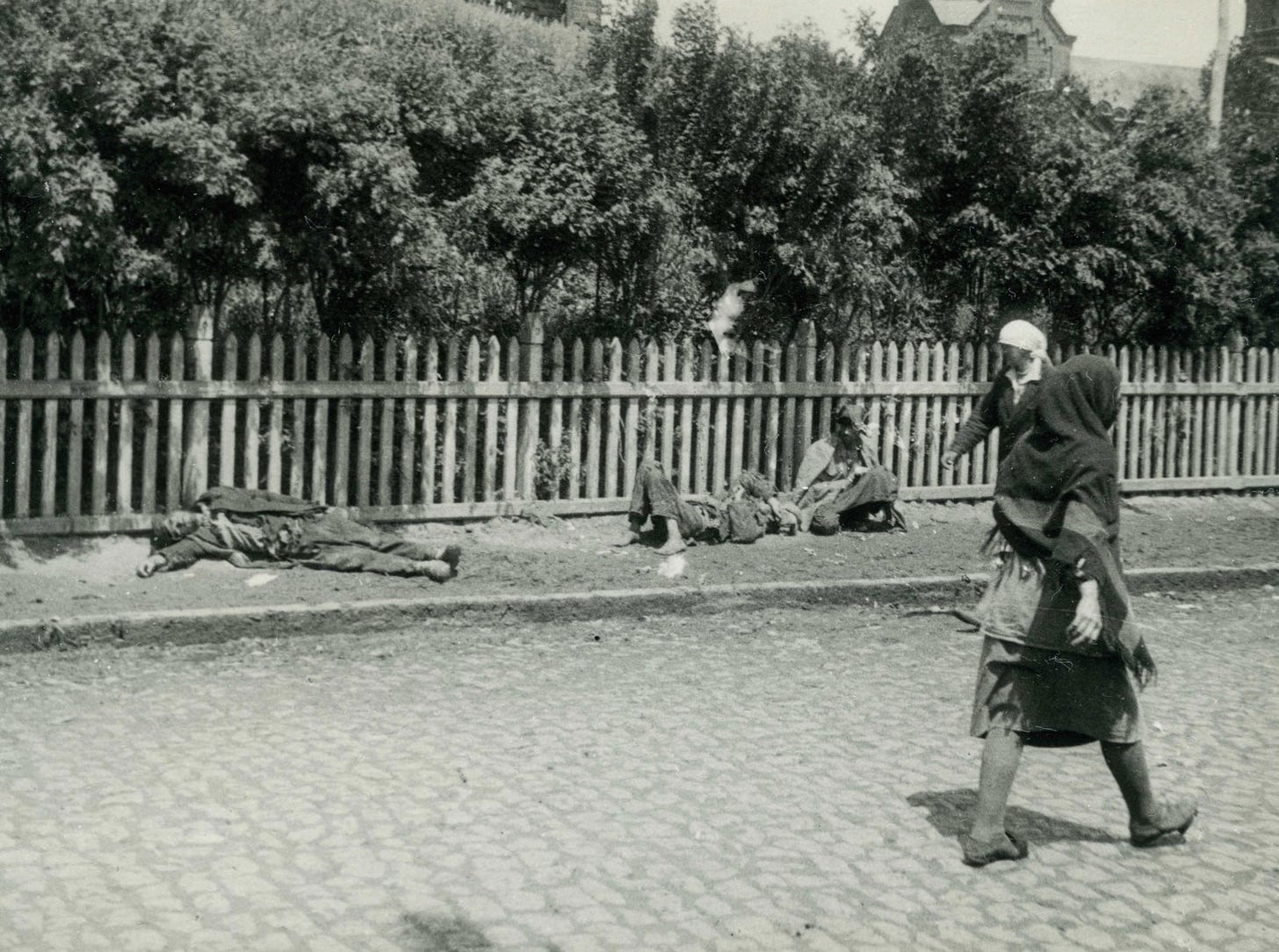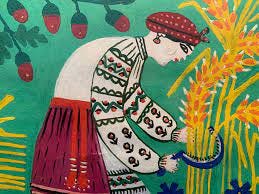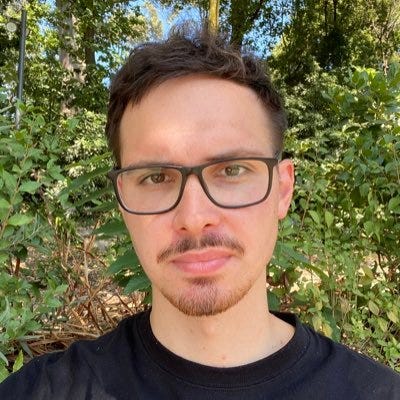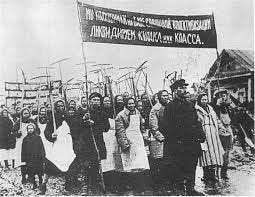Who is Stas Olenchenko…
Stas Olenchenko describes himself like this on Twitter: "I was writing UX content and had a podcast about climate crisis. Then Russia Invaded my Country." He is also founder and writer as Ukraine Explainers, mini-guidse to Ukraine and the Russian Invasion. Stas has been trying to undo the colonial myths about Ukraine.
Please take the time to read Stas’s personal story. We often focus on the underlying causes of Russia’s attack against Ukraine, but we never stop to read about how Ukrainians have come to demand Russia’s decolonisation. This thread sheds light on this, and it’s a moving personal account.
Stas Olenchenko: A Personal Story
Thinking about my grandma a lot lately: how she should be sitting on her porch, drinking cezve-brewed coffee and tending her garden of herbs and veggies.
Things would've been so different if there wasn't an empire seeking to submit and destroy Ukraine.
A 🧵on personal history
I think her story illustrates how the lives of Ukrainians were shaped by Russian Colonialism and its unpunished crimes, big and small. Let me show you why we are seeking justice in this war – not some "negotiated ceasefire" – by telling you the story of grandma Vira from Kyiv.
Grandma was born in 1946 and comes from a family of farmers living in a village near Kyiv.
In 1929-1930, like millions of Ukrainians at the time, her family had their land and home taken away by Soviet collectivization policy.
Her parents and their firstborn were homeless. Luckily, relatives and neighbors were there to help. A childless couple living at the edge of the village agreed to host the young family. The rest of their family had to move to neighboring villages or go live with relatives in Kyiv. Life was tough, but the community helped.
Then came the Holodomor of 1932-1933, a genocidal man-made famine that starved around 4.5 million Ukrainians to death. Ukrainian peasants had their crops, harvest, and any edibles taken away from them at gunpoint.

Learn more about the Holodomor here: Ukraine Explainers
Vira's parents and older baby sister survived. Here's how.
Ukrainian villages were starving to death, but cities had some food. So my great-grandpa would walk 120km to Kyiv on foot with the older couple's husband at night (peasants were banned from entering cities).
Their family in Kyiv saved up some food for them, and my great-grandpa would carry it back to their village. Because they lived on the edge of the village, they managed to hide some food by burying it in the forest nearby. Everything had to be done at night to avoid arrests.
Once my great-grandma saved the older couple's wife.
A scheduled truck with dead bodies arrived, and the wife was motionless, half-dead from hunger (the men were about to return from Kyiv). The truck driver wanted to take the woman so that he won't have to return the next day. My great-grandma had enough strength to convince the man that the woman will survive and that he should get the fuck out of their house. The husbands came back the next day, and the woman survived.
They all were lucky to make it past 1933.
The Holodomor survivors had only a few peaceful years before WW2 began. My great-grandpa went to fight against the Nazis and got wounded. The village survived the German occupation in 1941-1944, but the family's only daughter died of meningitis in 1942.
In 1946, grandma Vira was born.
I gave such a detailed account of the years before her birth to let you understand the level of austerity she was born into. The entire nation was crippled by repressions, famine, Nazi occupation, and the return of the criminal Soviet regime. That austerity got imprinted into grandma's upbringing, and it stays with her now.
All her life, even after moving to Kyiv in the 1960s, she was always growing her own veggies and herbs.
The urge to work the land sits deep in Ukraine's culture, but it was also about survival. All across Ukraine, the post-war generation is known for preserving every breadcrumb and storing conserved food every year.
Grandma always had an uncontrollable need to feed her kids and grandkids – up to the point of mental fixation. We always found it funny and a bit annoying.
Grandma has had a decent life. She moved to Kyiv, went to college, and met Vova, her future husband. Vira and Vova both came from Ukrainian-speaking peasant families, but both switched to Russian for work and studies.
They were the product of the Soviet Russification policy.
Vira had twins in 1970 (one of them is my dad Oleksandr), and they raised the kids in a Russian-speaking townhouse on the outskirts of Kyiv. They shared the townhouse with Vova's parents and his sister's family, so it was pretty crowded all the time.
Vira and Vova worked hard all their lives, and the entire family had a side gig – Vova's father was secretly breeding hens and selling pig fat coming from the relatives who stayed in the villages near Kyiv.
It was a small life filled with daily resilience and self-sufficiency.
Holodomor, WW2, and the Soviet totalitarian system adjusted the social life of Ukrainians. Local communities broke down. The state was never to be trusted. People outside the family and the absolute closest circle of friends were to be treated with suspicion a carefulness.
Grandma was always very protective of her children and grandchildren – trying to make sure they were fed and smiling. This kind of selfless love bordering with constant self-sacrifice is also something a lot of Ukrainian grandmas carry with them.
Even when there's enough food for everybody, Ukrainian grandmas tend to give away their portion for a child, even if the kid doesn't actually want it (because when you're a 7-year-old dude, you just want to finish off lunch ASAP & go play outside).
So for the last 20 years, grandma was full of energy and an uncontrollable primal urge for farming. Every spring, it was impossible to keep her home: she would force grandpa in their car and drive to dacha to work an entire garden of corn, berries, potatoes, tomatoes, etc.
Each year, our family used to wonder what to do with the harvest because there was just too much stuff. Making her grow less was impossible – she would still sneakily do it her way.
This comic cycle went on until a few years ago grandpa was diagnosed with Alzheimer's disease. We missed our chance to act early on his disease. There's a poor mental health culture in Ukraine, and people treat old-age forgetfulness as a given.
In just a couple of years, grandpa turned from the soul of every gathering, a walking joke machine, into a shadow of himself. For the last 4 years, he has been increasingly dependent on grandma in his daily life. Now, she has to take care of him all day, every day.
Grandma is not the kind of person who admits she's struggling or in pain, but I can hear how tired she's been the last 9 months. Taking care of a person with severe Alzheimer's is a huge burden, especially for an elderly person. Doing all of this with daily air raids, weekly missile strikes, and now regular electricity and heating blackouts – it's a titanic effort.
Grandma's life shows how Ukrainians were forced to submit to Russian rule hoping for stability and security. They carried traumas of genocide and war through generations and hoped their kids would never have a hungry day in their lives.
They cut ties with their native language, culture, and local communities just to receive better education and work prospects. They went along with the Soviet bullshit to survive in a system that robbed people of trust and hope.
After 1991, our mass murderers from Russia covered up their crimes, denied everything, and called us brothers while pointing a gun at our faces. The rest of the world thought it was okay. Our German occupants largely ignored us, thinking they owed an apology only to Russians.
When Ukrainians were finally strong enough to raise their voices and choose their future, Russia showed its true face again by launching another genocide. My grandma’s generation has finally met its lifelong nightmare: genocide repeating, survival mode as the new norm.
I’m in a place right now where old people like to gather at local cafes in the mornings, drink coffee and eat warm pastries for breakfast. I can’t help thinking that, at 76, my grandma should be one of those elderly gossipers and urban dwellers.
But she’s sitting at home hoping to have electricity for at least half a day to prepare food, heat up her house, and entertain grandpa with TV shows.
But I'm not writing this thread to attract pity or tears. No. I know there are millions of Ukrainian grandmas that lived through Russian, Soviet, and Nazi atrocities. I know they were robbed of many little things that make a happy, safe life.
I'm writing it because I don’t think Ukraine can afford another generation of Russian appeasement. I don’t think we can let Russia survive in its current imperial form. It would be immoral and unsafe.
I know this war is about so many things bigger than happy old age. But I will end this thread with this: I want the machine of Russian Colonialism gone for good.
I want a disarmed, decolonized, deconstructed Russia that pays reparations and faces its multiple colonial atrocities. I want the Russo-Ukrainian war to be the last crime that Russia can ever commit.
I want justice.





